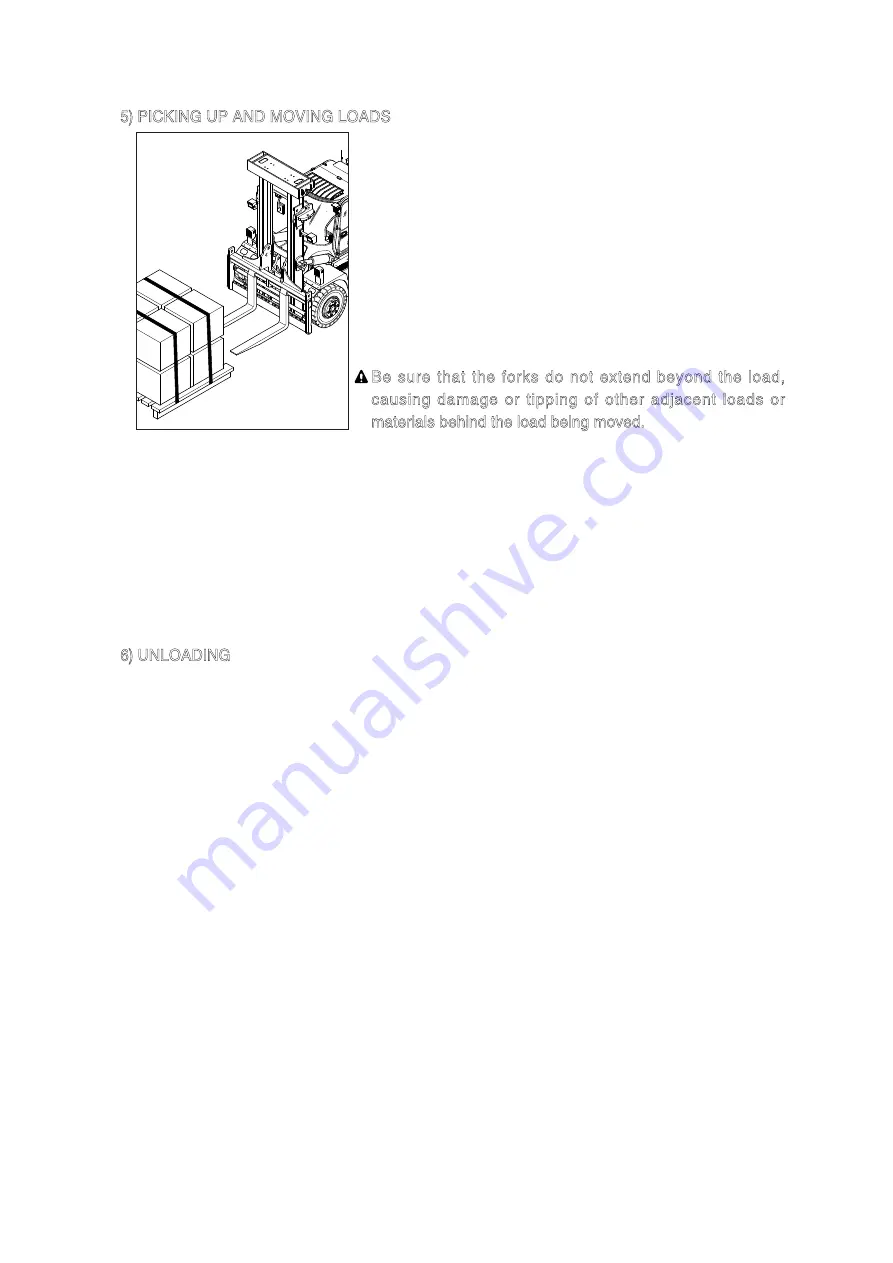
5-28
When picking up a load from the ground, approach the load
slowly and carefully align the truck square with the load. The
forks should be adjusted to fit the load or pallet being handle
and spread as wide as possible to provide good stability and
balance. Before lifting, be sure the load is centered and the
forks are fully under and supporting the load. Fork length
should be at least 2/3 of load length. With the lift and tilt
controls, adjust the forks to the correct height and angle for
freely engaging the load pallet. Move forward until the forks are
squarely and completely under the load.
Be sure that the forks do not extend beyond the load,
causing damage or tipping of other adjacent loads or
materials behind the load being moved.
If the forks are longer than the load, move the tips partially under the load without extending
beyond the load. Raise the load to clear the ground. Back out several inches, or whatever distance
is necessary, then set the load down and move forward until the load is positioned against the
carriage.
Raise the load from the ground or stack by tilting the mast back just enough to lift the load from the
surface. When stacking or tiering, use only enough backward tilt to stabilize the load.
Then raise the load to traveling height and tilt fully back to travel (Except for loads that must be
transported as level as possible).
UNLOADING
To deposit a load on the floor after being moved into the correct position, tilt the mast forward to a
vertical position and lower the load.
Adjust the fork height and tilt the mast forward slightly, as necessary, for smooth removal of the
forks from the load (Pallet).
Carefully back away to clear the forks from the load.
Raise the forks to traveling height and tilt forks to a level position 150~200 mm (6~8 in) off the floor.
6)
110D9OM136
PICKING UP AND MOVING LOADS
5)




































